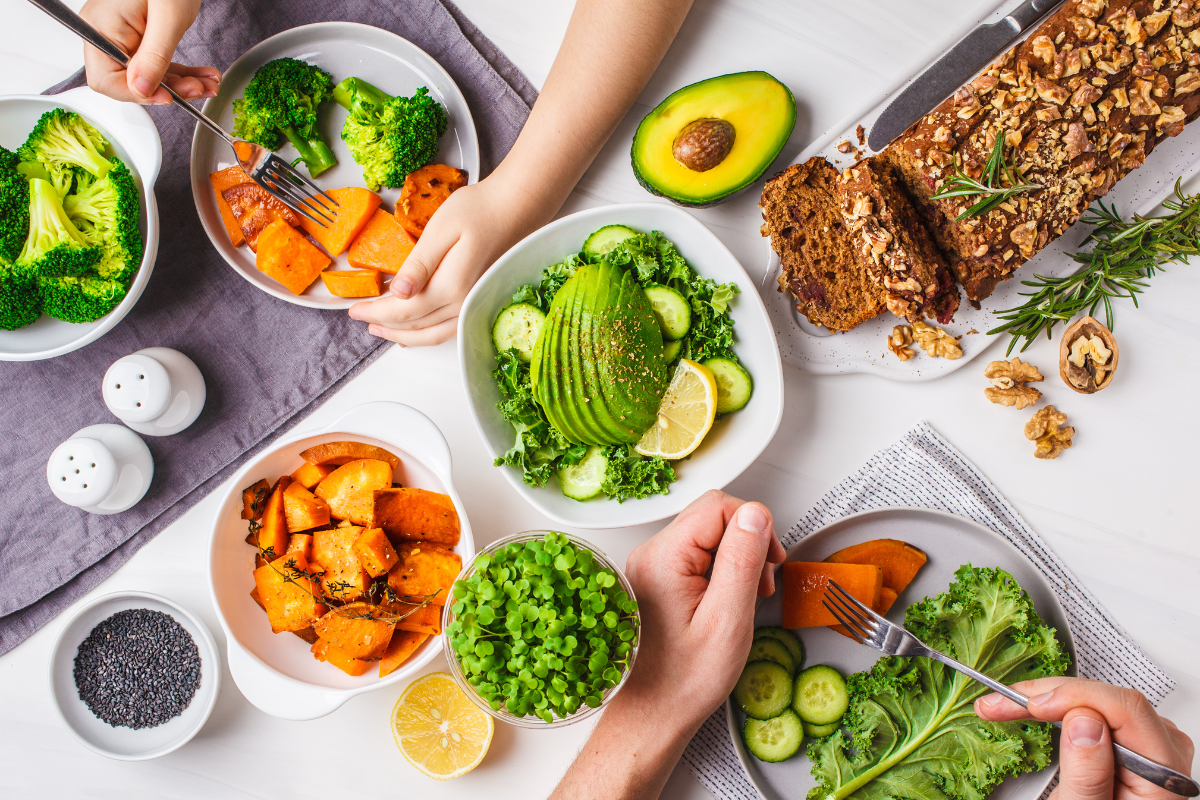
We all experience stress from time to time, especially in today’s fast paced world. Whether it’s the result of a busy period at work, changes in your personal life, or an uncomfortable situation, it is a state of worry and mental tension that can produce physical symptoms. But did you know that stress itself is just a build up of hormones?
The main stress hormones are adrenaline (also known as epinephrine), norepinephrine and cortisol. These hormones aid in our fight or flight response, helping us to stay safe. The issue comes when your stress hormones become chronically elevated. Permanently high stress hormone levels can lead to health conditions such as high blood pressure, diabetes, mental health disorders and heart issues. As part of a holistic approach to wellness, eating the right food can be effective in reducing stress and balancing hormones.
Since April is Stress Awareness Month, we thought we’d put together a list of hormone friendly foods that help you to de-stress.
The Role Of Diet In Stress Management
We all know a balanced diet, while incorporating all the necessary nutrients, is important for a healthy body, but further studies have been done showing the importance of specific foods in lowering stress levels. Certain nutrients have been shown to reduce stress hormones such as cortisol and adrenaline, and eating foods rich in these nutrients can help you to feel happier and less-stressed.
On the other hand, an unhealthy diet can also contribute to higher stress levels in the body. Items such as caffeine, processed sugar, alcohol and junk food create inflammation and hormonal imbalance in the body.
Top Hormone Friendly Foods to Help you De-Stress
- Fatty fish. Salmon, sardines and herring are filled with omega-3 fatty acids, which are rich in antioxidants and help reduce adrenal fatigue. Omega-3s are also known to help reduce levels of cortisol and adrenaline.
- Dark, leafy greens. Greens, such as kale and spinach are high in magnesium which help to fight stress and stress-related diseases. Magnesium is also known to have a calming effect on the body. If you are struggling to include more greens into your meals, try blending them up in a smoothie or sauce!
- Probiotic rich foods. Kombucha, kefir, greek yoghurt as well as fermented foods such as sauerkraut are great foods for rebalancing the microbiome in the gut. The gut-brain axis shows a correlation between the nervous system and intestinal functions. You know what they say, happy gut, happy mind.
- Berries and citrus fruits. These fruits are loaded with Vitamin C which help to reduce cortisol levels in the body.
- Cacao. Chocolate with high levels of cacao, which is made by cold-pressing unroasted cocoa beans, contains compounds such as flavanols and magnesium that boost mood and brain function, while reducing cortisol levels. Click here for the recipe for a delicious cacao and orange cake.
- Whole grains. Oats, quinoa, brown rice and other complex carbohydrates aid in boosting serotonin levels. Complex carbohydrates metabolise slowly which help to maintain a stable blood sugar level.
- Herbal teas. Chamomile tea is known to be a great stress-relieving tea and is especially great to have while winding down for bed. Green tea contains L-theanine, which helps to promote relaxation.
- Avocados and extra virgin olive oil. These healthy fats are great antioxidants. Avocados also contain high amounts of Vitamin B, which boosts adrenal gland function.
- Nuts and seeds. Walnuts, almonds and pumpkin seeds are not just a great source of healthy fats but also contain magnesium, vitamin E and zinc, all of which help to combat stress in the body. Try to choose plain nuts, which are often labelled as “raw”, as they are more nutrient dense.
BBC Good Food has some great recipes that include these foods, all of which will help reduce your stress levels and boost your mood.
Creating a De-Stress Lifestyle
It is important to note that eating these hormone friendly foods alone won’t fix your stress problems. Reducing stress needs a well-rounded holistic approach that is integrated into your daily routine. This includes exercising regularly, spending time outside in nature and with loved ones, meditating, and getting a good night’s sleep.
While diet and lifestyle changes can make a big difference, there can be other underlying issues for high stress levels and hormonal imbalance. Menopause, perimenopause, low testosterone, PCOS and endometriosis can also disrupt your hormonal balance, making you feel fatigued and stressed. It’s important to know when to seek out help from a medical practitioner.
If you feel like you are struggling with high stress levels that are the result of a hormonal imbalance, consider reaching out to one of our knowledgeable and friendly hormone specialists. At Marion Gluck Clinic, we specialise in hormone balancing therapy using bioidentical hormones and offer a bespoke medical program tailored to your needs. Book a consultation with a hormone specialist today.



